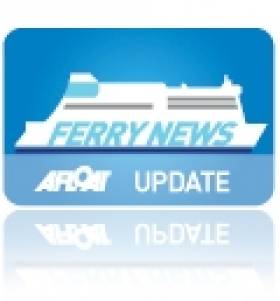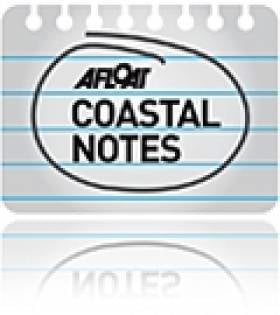Displaying items by tag: Inishowen Peninsula
Donegal-Derry Ferry Route Closes
According to the Lough Foyle Ferry Company website, the directors sincerely hope that the suspension of the service will be temporary and look forward to re-commencing operations in early 2012.
The 10-minute crossing served by the 300-passenger / 44-vehicle capacity Foyle Venture (photo) provided year-round sailings. During the summer months the schedule was increased to a continuous shuttle-service as it provided a convenient short-cut for Northerners heading to Donegal.
Motorists could save nearly 80 kms (50 miles) by travelling across the Inishowen Peninsula instead of having to drive through London/Derry. In its third year of operations, the company carried its one-millionth passenger and since then the route has exceeded 2m passegers.
Ireland’s Countdown to Rocket-Ship Launch!
The RLM which stands for "Ridiculously Large Missile" is the second-largest civilian rocket ever launched in Ireland. In fact the organisers have built a larger one called the BFM: that's "Big Fat Missile".
The spectacular event has previously taken place on the last Sunday of each month since April. Today's launch will be the fifth and final blast-off of this year's rocket season.
Returning to earth, the museum located in the old coastguard station overlooks Greencastle harbour, which has one of busiest fishing fleets in Ireland.The maritime museum and its planetarium will also be open today. For summertime opening hours and admission fees information Tel: (074) 9381363 or visit http://www.inishowenmaritime.com/about.shtml
Greencastle is also conveniently connected by a 15-minute car-ferry service across Lough Foyle to Magilligan in Co. Derry. The route is served by the Foyle Venture, for ferry times and fares visit www.loughfoyleferry.com/

























































